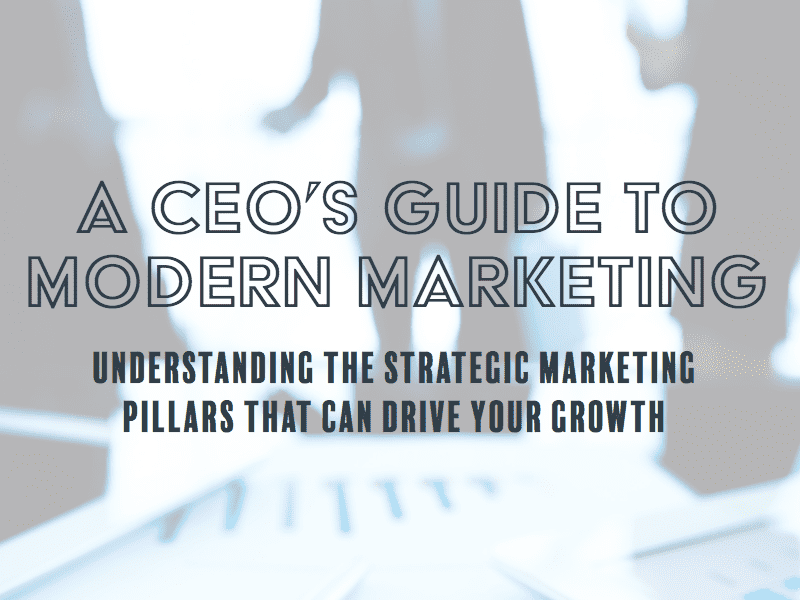Which of the 4 Types of B2B Marketing Plans Fits You Best?
by Debra Andrews | August 8, 2017
When the save the date arrived in its perfectly scripted white envelope, I was tickled pink. I hadn’t been to a wedding in years. For a few moments, I reflected on sweet, young love—and adorable Emily and Tim. But slowly an all-important question consumed me: “What should I wear?!” For a summer formal wedding, many outfits could work. But this affair deserved something new from Nordstrom—a fitted, sleeveless, t-length, floral frock would be perfect.
As it turns out, marketing plans aren’t that different than special life occasions. Just as the nuances of a wedding dictate what guests should wear, a company’s goals and circumstances direct what type of marketing plan it needs to grow.
B2B marketing plans differ in terms of complexity, focus, and their strategic or tactical orientation. These factors determine the length of time it takes to create one and the associated cost when using a strategic marketing consultant. Some B2B companies have very modest goals and are happy with a back of the napkin type approach (which we never recommend). Other enterprises are growth-oriented and need detailed roadmaps that will guide them from their current to their future state. Either way, it’s important to have a plan in place and stick to it. It saves a lot of headaches and unnecessary detours.
If your company has goals, is ready for a plan, but simply doesn’t know what type it needs, then read on! Let’s go over four basic types of plans that meet a range of needs. Hopefully they’ll help you find the best fit for the occasion.
Strategic Marketing Plans
We consider these the kings of all marketing plans. They’re generally the right fit for aggressively growth-minded companies that:
- Want to differentiate themselves to better compete,
- Invest in marketing technologies to build scale,
- Use the optimal combination of in-house and outsourced marketing resources, and
- Execute to pick low-hanging fruit while planting seeds in high growth target markets.
Strategic marketing plans go from big picture goals all the way down to the most granular detail of who will do what and by when. When you’re considering whether a strategic marketing plan is a good fit for your company, here are some questions to answer:
- Who’s responsible for strategy? A company’s executive team generally relies on an outsourced strategic marketing consultant to develop the strategic direction as part of the plan.
- What is the cost? This depends on your provider, but these plans take us approximately two to three weeks to put together, so they represent a significant investment (ranging from $15,000 – $25,000*).
- How do they get executed? The complexity of recommendations in these plans calls for senior-level (i.e., CMO) marketing guidance when it comes time for implementation and measurement. Many companies benefit from fractional CMO services to cost-effectively execute strategic marketing plans.
- When do companies need one? Strategic marketing plans are needed when a company has lofty growth goals and believe effective marketing is critical to reaching them.

Niche Marketing Plans
Niche marketing plans are perfect for companies that have already done the strategic heavy lifting. They help such companies build further penetration in their existing vertical or geographic markets, or even gain awareness in a new niche.
When evaluating outside resources to assist with planning, many B2B companies choose a strategic marketing provider based upon its experience in creating and executing plans in certain industry sectors. For niche strategies to work, companies need to be legitimate thought leaders prior to extensive proactive marketing. Therefore, the type of recommendations we’d make in this type of plan will be tied intimately to a client’s true subject matter expertise. Here’s a breakdown of this type of plan:
- Who’s responsible for strategy? A company’s executive team generally specifies target markets.
- What is the cost? Speaking for us, these plans take three to four days to put together, including some initial research to gain an understanding about our client. It’s a more modest investment (ranging from $5,000 to $10,000*) that helps ensure resources are utilized to achieve growth goals while working to reduce the cost of acquiring new niche market clients.
- How do they get executed? Tactical marketing professionals often drive the implementation of niche marketing plans. However, we’ve found oversight by a fractional CMO can be beneficial—especially when a company is entering a new market.
- When do companies need one? Niche marketing plans are typically developed when there’s been a strategy shift and aggressive market penetration is a goal. In terms of updating, we recommend that they be updated annually.
Product, Service, or Software Launch Plans
Product, service, or software launch plans are needed when introducing (or reintroducing) an offering or the latest version of an existing offering. These plans vary in complexity. Product launches tend to be the most complex as they require tight coordination with engineering, operations, customer support, and sales. Service launches don’t have as many moving parts, but depending on the offering, they can present a messaging challenge. The goal of strategic marketers with such plans is to make new services as tangible as possible while bringing clarity to their primary benefits. Here’s more about these types of plans:
- Who’s responsible for strategy? The product or service launch team (or committee) is responsible for the strategy.
- What is the cost? It’s challenging to gauge the cost of a launch plan due to varying complexity and timing issues. Because of the level of variance and focus on timeline, we’ve found organizations benefit from having either an in-house CMO or an outsourced, fractional CMO on retainer. (This can range from $3,500 to $10,000* per month during the development and launch period.)
- How do they get executed? A strategic marketing professional (i.e., full-time CMO or fractional CMO) needs to oversee the implementation of a product, service, or software launch plan. S/he will typically oversee a team of marketing specialists and tacticians during the pre-launch, launch, and post-launch periods.
- When do companies need one? A marketing plan needs to be created at least six months prior to launch, but the sooner the better.
Marketing Action Plans
For smaller companies or those with more limited growth goals, marketing action plans can be the perfect fit. These documents consist of tactics, as opposed to any sort of strategy, and are organized as a campaign or series of campaigns. They typically leverage existing marketing technologies and infrastructure and are more short-term focused. While fairly easy to create, marketing action plans prove to be tricky for strategic marketers, due to unrealistic expectations among executives and sales about what they will accomplish. Here’s what you need to know about them:
- Who’s responsible for strategy? There is no strategic component. The sales executive or another member of the executive team simply wants to shine the light on a certain aspect of the company.
- What is the cost? Marketing action plans typically take less than three days’ time to create making for a limited investment (ranging from $3,500 to $6,500*).
- How do they get executed? A tactical marketing professional can execute an action plan with little difficulty.
- When do companies need one? Any time there’s a need to highlight an area of the company.
Saying “I Do”

For the record, I think I got the right dress, but it paled in comparison to Emily’s. The wedding was absolutely wonderful, and I’m honored to have been a part of it.
But to wrap up, if your company wants systematic, proactive marketing that fits, then you should start with a plan. Finding the marketing plan that’s the perfect match for your growth goals and financial resources can make all the difference in your success.
If you’re looking for more information about plans, you can also read our free resource by clicking the image below.
*Please note that all fee ranges quoted in the blog are specific to Marketri. Other marketing providers may have different approaches and associated fees.





